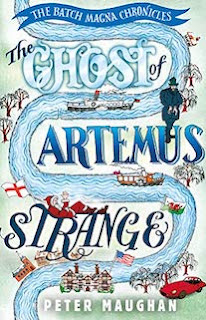Rating: 3/5
Review:
Disappointing
This is the first
Ann Cleeves that I have read and I was looking forward to it. Sadly,
I was rather disappointed.
The Long Call is the
first in a new series featuring DI Matthew Venn, who has recently
moved back to his childhood home in North Devon. He is estranged
from his parents and the strictly religious group in which he grew up
because he is gay and has married another man. A body found on a
beach leads Matthew into an investigation which (of course) involves
this group and also the arts and day centre for learning disabled
people run by his husband.
Ann Cleeves
generates a good sense of place and it’s good to see gay and
learning-disabled characters at the forefront of the story...but the
story just isn’t all that well done. There are lots of great,
indigestible chunks of characters’ history, quite often of
characters who aren’t that important, the whole thing moves very
slowly and I got quite bored at times. The “It’s Personal”
aspects felt like a well-worn literary device rather than a natural
part of the story and there is (of course) a Race Against Time toward
the end with some pretty implausible Investigator In Peril stuff
which all felt very formulaic - although we were at least spared a
clichéd Cornered Killer Climax.
I did finish the
book, but it was a bit of a slog and I’m not inclined to pursue the
series. Personally, I can’t really recommend it. (2.5 stars
rounded up to 3.)
(My thanks to
Macmillan for an ARC via NetGalley.)







